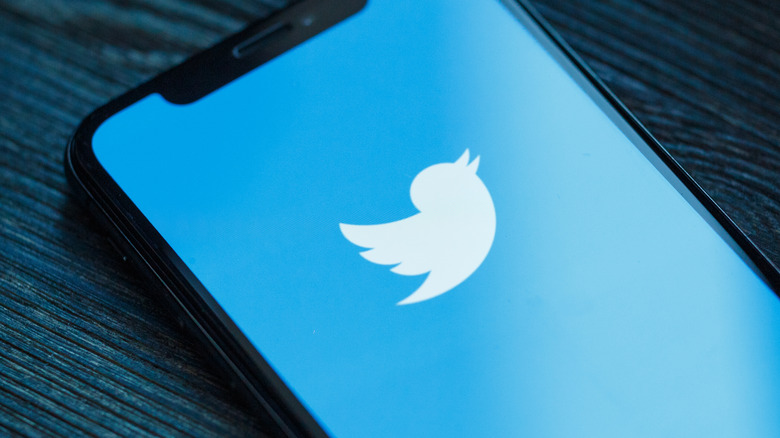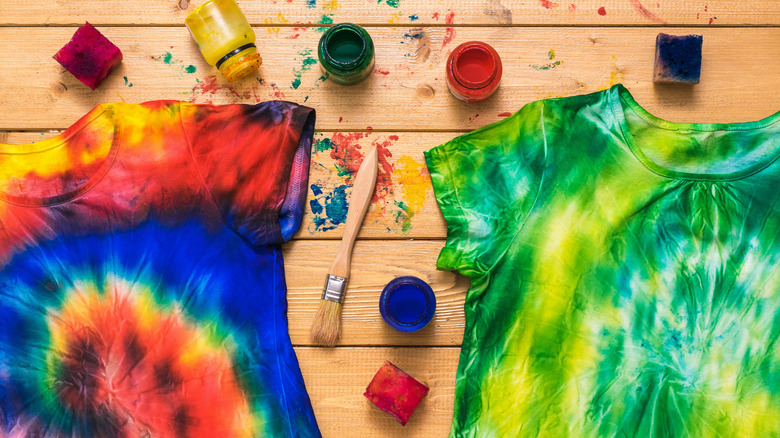Why You Should Never Tell A Twitter Artist To Make T-Shirts
Twitter: the land of the free, right? Everyone can use it to express their opinions (within reason) and build communities. Naturally, one can get kicked off of Twitter if their tweets repeatedly violate Twitter's policies, though Donald Trump is anxious to get on Twitter again. The platform even has its quirks, such as the Twitter ratio phenomenon.
While Twitter has a lot of positives, the infiltration of bots over the last several years has impacted everything from tweet conversations between friends to politics and even the entertainment industry. According to Reuters, the truth about "Star Wars: The Last Jedi" is that a lot of the hate the film received was from bots, not actual moviegoers.
The same frustrations are shared by artists. The platform is home to large art communities ranging from written arts to visual arts and musical arts, too, and these communities make networking easier than ever. Not only are artists able to connect with other artists and consumers alike, but ideas are also able to be spread. With collaboration often being the backbone of art, this is paramount. Unfortunately, the visual arts have it the hardest with Twitter bots, and the bots' actions are worse than you might think.
Someone is profiting off of artists' work
Visual artists' work is being stolen when supportive followers recommend to them that they put their art on t-shirts. Presumably, the bots search on Twitter phrases related to art and t-shirts, and then, according to the BBC, they steal the artwork, upload them on third party t-shirt websites, and reap the profit from any sales.
Some even believe there's an established algorithm that allows the bots to quickly track artwork that they can steal and profit from. Artist Jesse McLaren fell victim to this and then tweeted, "So I posted a picture of myself wearing a shirt that I made — and then immediately had reply tweets featuring my shirt, that I designed, for sale. Like there's an algorithm that just finds Tweets containing shirts, copies the image, and sells it asap. It's ... really impressive?"
The BBC further noted that the third party websites don't appear to have any connection to the artwork being stolen, indicating that someone, or a team, created the bots without the consent of the t-shirt production companies. The situation is awful for artists, but artists have rallied and even gotten whoever is behind the bots to accidentally admit their scheme. According to Waxy, Twitter user @nanadouken posted a simple design that read, "This site sells STOLEN artwork, do NOT buy from them!" with a heart and a winking face. The design soon appeared on a t-shirt website, as expected, proving a bot's involvement.
Ultimately, the battle between artists and these thieving bots is ongoing, but we can only hope that artists pull out on top.

